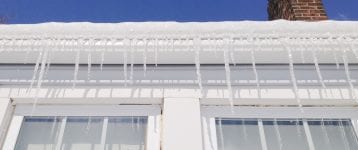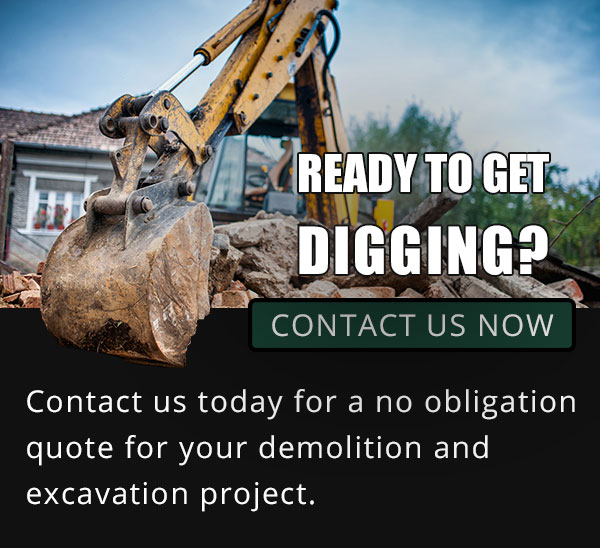The phrase “putting your house in order” generally describes arranging your affairs and solving your problems. Taken literally, it means setting up your home the way you want it and making sure all systems are working properly. The drainage around your home is a key part of the process.
It has been said time and again that your home is your castle. However, that castle won’t be too comfortable if it leaks or the grounds are constantly soggy. Installing drainage around your home can protect your investment and improve water maintenance.
Why installing drainage around your home is important
Maintain a healthy landscape
If you have stagnant water that pools in your yard or garden, it can damage your grass, trees and flowers. Plant life will die if underwater for too long. There is also the possibility for vermin and insect manifestation, which can breed diseases and bacteria. Excess moisture is also like a welcome mat for termites. In addition, soil erosion, dry patches and puddles made your outdoor space look unattractive.
Protect your foundation
When your legs are not strong and healthy, your body is weak and subject to falls. Without a solid foundation, your home cannot stand. It’s the most important part of your home because everything else sits on top of it. Unfortunately, improper drainage can put it at risk. If storm water is not diverted correctly or you experience other drainage problems, your foundation may be destabilized. Water that seeps in at the top of your foundation can result in a wet sill plate, which will send all that moisture upwards to your floors and walls. This could lead to leaks, wood rot, mildew, termites and other insects. In the event that water gets into your basement, it could create a standing water problem, and this affects air quality, humidity and the development of mold. Fixing your drainage issues before the freeze thaw cycle is critical.
Make better use of the water on your property
Snow and rainwater will fall. There’s no changing that. What can change is how you think about it and use it. Conservation can play an important role in your overall outdoor space. You can collect it for watering plants and grass, creating a birdbath or, if your drainage system also filters the water, you can use it for drinking.
Safety
Pooling or puddling water on your property is not only a health hazard; it can be dangerous as well. Icy patches that form during freezing temperatures can cause treacherous conditions. If ice pools on your sidewalk and someone falls and get hurt, you will be in danger of lawsuits and other penalties.
Cleanliness
Don’t you just hate it when family and visitors track mud onto your floors and carpet? Puddles plus dirt equal disaster for your floors. Keeping excess water away will help to alleviate the problem.
Control erosion
Erosion typically happens slowly, over time, washing away the topsoil in your yard. Before you know it, you will have excessively wet, muddy or flooded areas. While you may not be able to make your yard level, the right drainage solution can help you manage how the water flows on it.
Prevent issues with neighbors or town
When you have a disproportionate amount of water flowing through your property, you just want it gone. Unfortunately, you can’t just direct it into the street or onto neighboring property. This will create bigger problems and could even be illegal in some circumstances, leading to strained relationships or even fines from the city.
Options for drainage improvement around your home
Check downspouts
Sometimes the problem could simply be how rainwater is directed. Try to discover where excess water is coming from before taking drastic action. The issue could be a misdirected downspout or a landscaping addition underneath that is causing water to pool. If that’s the case, a sump pump or a downspout extension might solve the problem.
Map out high and low spots on your property
Water can only flow downhill. It’s vital to be mindful of this as you plan landscaping strategies. If your house sits on a hill or excess water is unavoidable, you may want to use more creative measures, like building a rain garden filled with flowers that thrive on lots of water or a creek bed.
Install an underground drain pipe
This represents one of the best ways to handle water in low spots. It involves digging a trench and then using a plastic basin to catch the water and send it through a PVC drainpipe.
Hire a residential or commercial drain contractor to install an in-ground system
Do it yourself projects might be okay if you really know what you’re doing but in many cases, these may do more harm than good and you could end up impeding drainage rather than fixing it. Other times, simple remedies just aren’t enough to handle serious, recurring drainage problems.
If the drainage issues in your yard cause you headaches year after year, it might be time for a more permanent solution. You can choose a long-term resolution that will take care of your drainage hassles forever. While this does require lots of digging and a bit of disruption, but it will resolve your drainage concerns once and for all. You will save money in the long run and gain peace of mind that comes from knowing the problem won’t come back.
Make sure the company you choose is properly licensed and holds the right type of insurance. They should also be customer friendly and willing to explain all aspects of the drainage solution process.
Troubleshooting drainage issues takes experience. Mikula Contracting handles ground, land and backyard drainage as well as rainwater and standing water drainage and surface drainage systems. We will evaluate your drainage situation and create a customized plan that is right for you. We service Essex, Passaic, Hudson, Bergen, Union and Morris counties. Call today for a fast quote so you can be ready for winter tomorrow.



